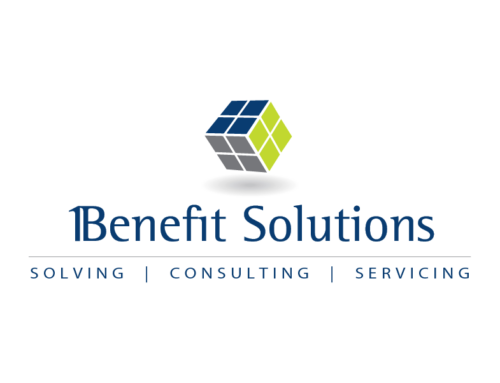The IRS recently released Revenue Procedure 2020-32 to provide the inflation-adjusted limits for health savings accounts (HSAs) and high deductible health plans (HDHPs) for 2021.
These limits include:
- The maximum HSA contribution limit
- The minimum deductible amount for HDHPs
- The maximum out-of-pocket expense limit for HDHPs
These limits vary based on whether an individual has self-only or family coverage under an HDHP.
What are the limits for 2021?
Eligible individuals with self-only HDHP coverage will be able to contribute $3,600 to their HSAs for 2021, up from $3,550 for 2020. Eligible individuals with family HDHP coverage will be able to contribute $7,200 to their HSAs for 2021, up from $7,100 for 2020.
Individuals who are age 55 or older
HSA and HDHP Limits for 2021 Announced
The IRS recently released Revenue Procedure 2020-32 to provide the inflation-adjusted limits for health savings accounts (HSAs) and high deductible health plans (HDHPs) for 2021.
These limits include:
- The maximum HSA contribution limit
- The minimum deductible amount for HDHPs
- The maximum out-of-pocket expense limit for HDHPs
These limits vary based on whether an individual has self-only or family coverage under an HDHP.
are permitted to make an additional $1,000 “catch-up” contribution to their HSAs. The minimum deductible amount for HDHPs remains the same for 2021 plan years ($1,400 for self-only coverage and $2,800 for family coverage). However, the HDHP maximum out-of-pocket expense limit increases to $7,000 for self-only coverage and $14,000 for family coverage.
Employer Action Steps
Employers that sponsor HDHPs should review their plan’s cost-sharing limits (minimum deductibles and maximum out-of-pocket expense limit) when preparing for the plan year beginning in 2021. Also, employers that allow employees to make pre-tax HSA contributions should update their plan communications for the increased contribution limits.
The IRS released Notice 2020-29, which provides temporary flexibility for midyear election changes under a Section 125 cafeteria plan during calendar year 2020. The changes are designed to allow employers to respond to changes in employee needs as a result of the COVID-19 pandemic.
This guidance relates to mid-year elections for:
- Self-insured and fully insured employer-sponsored health coverage
- Health flexible spending arrangements (health FSAs)
- Dependent care assistance programs (DCAPs)
A plan may permit any of the election changes described in the notice, regardless of whether they satisfy existing midyear election change rules.
What changes are permitted?
For employer-sponsored health coverage, a Section 125 cafeteria plan may permit an employee to prospectively:
- Make a new election if the employee previously declined coverage.
- Revoke an existing election, and make a new election to enroll in different health coverage sponsored by the employer (including changing enrollment from self-only coverage to family coverage).
- Revoke an existing election, if the employee attests in writing that he or she is, or immediately will be, enrolled in other health coverage.
For health FSAs and DCAPs, employees may be permitted to prospectively:
- Revoke an election.
- Make a new election.
- Decrease or increase an existing election.
The relief applies to all types of health FSAs, including limited-purpose health FSAs. In addition, employers are permitted to limit mid-year elections for health FSAs and DCAPs to amounts no less than amounts already reimbursed.
Employer Action Steps
Employers using this relief may determine the extent to which such changes are permitted and applied. If these changes are permitted, the employer must adopt a plan amendment by Dec. 31, 2021, and inform employees of the change. The amendment may be retroactive to Jan. 1, 2020.
Changes to the plan may implicate other applicable laws, such as participant notification requirements under ERISA.
Deadline Relief for Certain Employee Benefit Plans
The DOL and the Department of Treasury (Treasury) recently issued deadline relief to help employee benefit plans and plan participants affected by the COVID-19 outbreak. It also includes the deadline extension pursuant to the DOL’s Disaster Relief Notice 2020-01, for notices and disclosures required under the Employee Retirement Income Security Act (ERISA).
Participant Notices
The final rule extends the time frames for health plan participants to:
- Request special enrollment under HIPAA.
- Elect COBRA continuation coverage – pay COBRA premiums and notify the plan of a COBRA qualifying event.
File benefit claims and appeals and request external review of denied claims.
These deadlines are extended by disregarding the “Outbreak Period.” The Outbreak Period is the period of time from March 1, 2020, until 60 days after the announced end of the National Emergency (or such other date announced by the DOL and Treasury). The Outbreak Period cannot exceed one year.
Deadline Extensions
The following employee benefits plan deadlines have been extended.
HIPAA Special Enrollment
The final rule extends the 30-day period (or 60-day period, if applicable) to request special enrollment to begin after the announced end of the National Emergency and Outbreak Period.
COBRA Time Frames
The final rule extends the previously discussed COBRA deadlines to begin after the announced end of the National Emergency and Outbreak Period.
ERISA Notices and Disclosures
In addition to the deadline relief above, the DOL issued Disaster Relief Notice 2020-01 to extend the time for plan officials to furnish benefit statements and other notices and disclosures required under ERISA.
Some of the key disclosures required by ERISA include the Summary Plan Description (SPD), Summary of Material Modifications (SMM) and Summary of Benefits and Coverage (SBC).
This relief is available to plans that act in good faith to furnish required documents as soon as administratively practicable. Acting in good faith can include using electronic communication to provide documents if certain requirements are met.
More Information
There are additional deadlines affected by the COVID-19 relief. Contact us today to learn which other benefit plan deadlines are extended.
IRS Provides More Options for Unused FSA and DCAP Funds
The IRS recently announced more options with respect to unused amounts in health flexible spending accounts (FSAs) and dependent care assistance programs (DCAPs). These options allow employers to permit:
- An extended period for incurring health FSA or DCAP expenses
- Health FSA carryovers of up to $550
In addition, the IRS relaxed the midyear election change rules for health FSAs and DCAPs for 2020 to allow participants to revoke their elections, make new elections, or increase or decrease existing elections.
What Is a DCAP?
A DCAP allows employees to pay for qualifying dependent care expenses on a tax-free basis, up to certain limits. With many schools and day care facilities closing due to the COVID-19 outbreak, employees may want to change the amount of their DCAP contributions. Employees may also be concerned about not being able to use all of their DCAP funds this year due to changing needs and availability.
Extended Period
Due to the COVID-19 pandemic, employees may be more likely to have unused amounts in their health FSAs or DCAPs. IRS Notice 2020-29 allows employers to permit employees to apply unused amounts remaining in a health FSA or a DCAP at the end of a plan year ending in 2020 (or a grace period ending in 2020) to pay or reimburse expenses incurred through Dec. 31, 2020. This relief applies to all health FSAs, including health FSAs that allow carryovers.
Carryover Limit
IRS Notice 2020-33 increases the health FSA carryover limit for unused funds remaining at the end of a plan year from $500 to $550 to reflect indexing for inflation. This change is effective for plan years beginning in 2020 (and reflects the maximum amount that may be carried over to the following plan year beginning in 2021).
Section 125 Plan Amendments
Employers that implement these changes must adopt an amendment for their Section 125 cafeteria plans by Dec. 31, 2021. Employees must also be notified of the changes.
Employer Action Steps
To help minimize the impact of the COVID-19 pandemic on employees’ dependent care benefits, employers should consider relaxing their rules for midyear election changes and providing an extended period for incurring DCAP expenses. Employers that make these changes should inform their eligible employees.
Download PDF version HERE.
Stay Informed
Join our newsletter to stay up to date on all of the latest news. We will never email you more than twice month and we are sure you’ll find our communication valuable.





